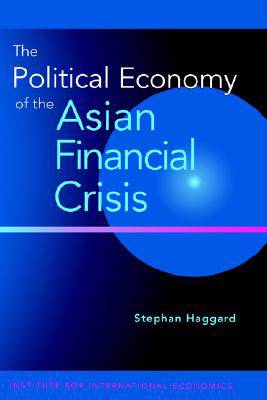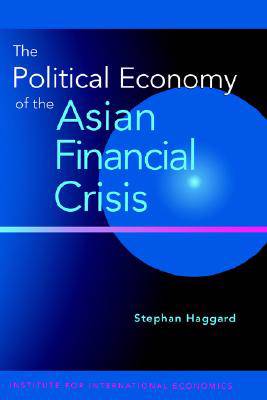
- Afhalen na 1 uur in een winkel met voorraad
- Gratis thuislevering in België vanaf € 30
- Ruim aanbod met 7 miljoen producten
- Afhalen na 1 uur in een winkel met voorraad
- Gratis thuislevering in België vanaf € 30
- Ruim aanbod met 7 miljoen producten
Zoeken
€ 42,45
+ 84 punten
Omschrijving
The Asian crisis has sparked a thoroughgoing reappraisal of current international financial norms, the policy prescriptions of the International Monetary Fund, and the adequacy of the existing financial architecture. To draw proper policy conclusions from the crisis, it is necessary to understand exactly what happened and why from both a political and an economic perspective.
In this study, renowned political scientist Stephan Haggard examines the political aspects of the crisis in the countries most affected--Korea, Thailand, Malaysia, and Indonesia. Haggard focuses on the political economy of the crisis, emphasizing the longer-run problems of moral hazard and corruption, as well as the politics of crisis management and the political fallout that ensued. He looks at the degree to which each government has rewoven the social safety net and discusses corporate and financial restructuring and greater transparency in business-government relations. Professor Haggard provides a counterpoint to the analysis by examining why Singapore, Taiwan, and the Philippines escaped financial calamity.The volume... provides an excellent overview of both the theories and facts of the crisis. Strongly recommended for academic collections, lower-division undergraduate through research.
Specificaties
Betrokkenen
- Auteur(s):
- Uitgeverij:
Inhoud
- Aantal bladzijden:
- 304
- Taal:
- Engels
Eigenschappen
- Productcode (EAN):
- 9780881322835
- Verschijningsdatum:
- 1/08/2000
- Uitvoering:
- Paperback
- Formaat:
- Trade paperback (VS)
- Afmetingen:
- 153 mm x 229 mm
- Gewicht:
- 412 g

Alleen bij Standaard Boekhandel
+ 84 punten op je klantenkaart van Standaard Boekhandel
Beoordelingen
We publiceren alleen reviews die voldoen aan de voorwaarden voor reviews. Bekijk onze voorwaarden voor reviews.











